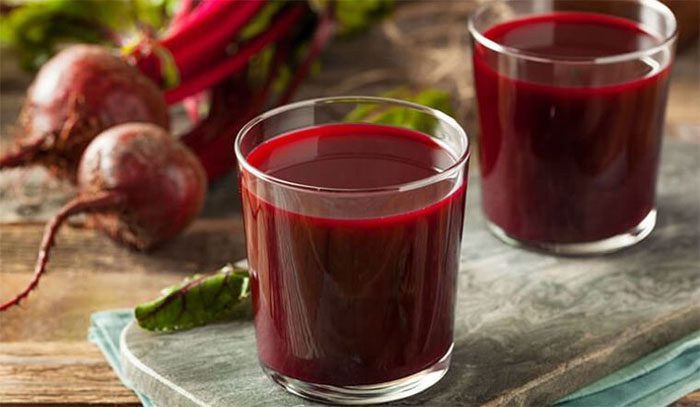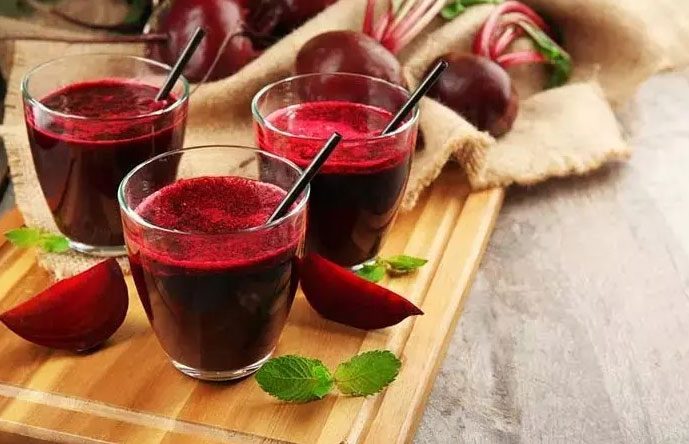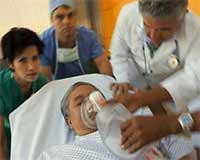Excessive consumption of beetroot juice may pose unexpected health risks.
Beetroot juice is an excellent source of vitamins. Furthermore, it has a beautiful and appealing red color. Folklore suggests that beetroot juice is a rich source of iron, and those suffering from anemia should include it in their diet. However, overusing beetroot juice can lead to unexpected health risks.
The Truth About “Drinking Beetroot Juice Helps Boost Blood”

Beetroot juice does not help us boost blood as many people mistakenly believe.
Analyzing the blood-boosting effects of beetroot juice, Master of Science Dr. Dang Ngoc Hung (Institute of Nutrition Research and Consulting) stated: “Essentially, beetroot juice does not help us boost blood as many people mistakenly believe because the red color is not iron but betacyanin. This substance is also found in amaranth leaves and red-fleshed dragon fruit.“
Dr. Hung further noted that while beetroot contains certain bioactive compounds, such as proteins, carbohydrates, and various vitamins, one important thing to keep in mind is that beetroot is very high in natural nitrates – which we need to manage in our diet.
“Beetroot is not a harmful food; however, excessive intake of nitrates from drinking beetroot juice can be detrimental to the body, especially in children. Many mothers give their children beetroot juice daily, even using it to mix with milk. The high levels of nitrates in the child’s blood can interfere with the oxygen transport of red blood cells. Consuming large amounts of beetroot juice does not necessarily boost blood but leads to excessive nitrate intake, which can be harmful to both children and adults,” the expert shared.
Unexpected Dangers of Overconsuming Beetroot
Beetroot juice contains a lot of vitamin C, iron, manganese, folate, folic acid, oxalic acid, fatty acids, and fiber. However, overusing it can lead to negative health effects. This does not mean that you should completely avoid beetroot; rather, it should be consumed in moderation.
Here are the risks associated with excessive consumption of beetroot and beetroot juice.
1. Increased Risk of Kidney Stones
According to the U.S. Clinical Nutrition Research, beetroot is very high in oxalic acid and may contribute to the formation of stones. If you have had stones in the past, your doctor may advise you to stop or reduce your intake of beetroot extract/beetroot juice.
Symptoms of kidney stones include fever, vomiting, nausea, diarrhea, sharp pain in the abdomen and groin, and discolored urine.
2. Increased Risk of Anaphylaxis
Anaphylaxis is an acute allergic reaction to allergens that the body becomes hypersensitive to. In many cases, consuming too much beetroot can cause allergic reactions, leading to a sore throat and bronchospasms.

Beetroot is very high in oxalic acid and may contribute to stone formation.
3. Not Good for the Liver
Researchers suggest that consuming too much beetroot can lead to the accumulation of metal ions in the liver, which can be harmful over time.
4. May Cause Calcium Deficiency
Reports indicate that drinking too much beetroot juice can reduce calcium levels in the body. Women with low calcium levels are advised to avoid excessive consumption of beetroot juice.
5. May Cause Stomach Discomfort
According to a publication from the U.S. Department of Health and Human Services, the nitrates in beetroot juice can cause abdominal pain. High nitrate exposure can lead to stomach cramps and vomiting. Increased nitrate levels can result in side effects such as reduced blood flow and increased heart rate.
How Should Beetroot Be Consumed?
There are no official recommendations regarding the safe dosage of beetroot juice, so it is best to consult your doctor for guidance on daily intake. Your doctor can provide recommendations based on your health status.
Dr. Hung advises that families should only use beetroot for cooking or as a regular food. It is best not to extract the juice for drinking or use it too frequently with the hope of boosting blood levels.




















































